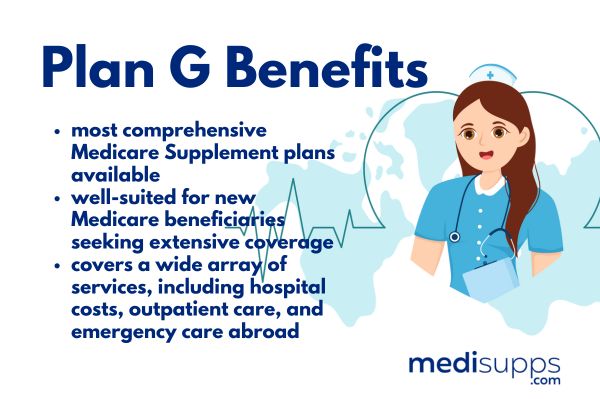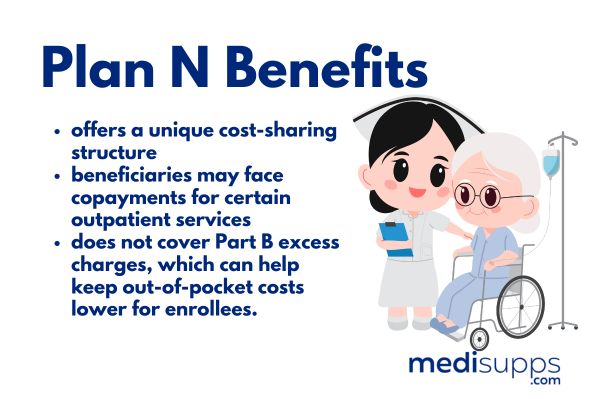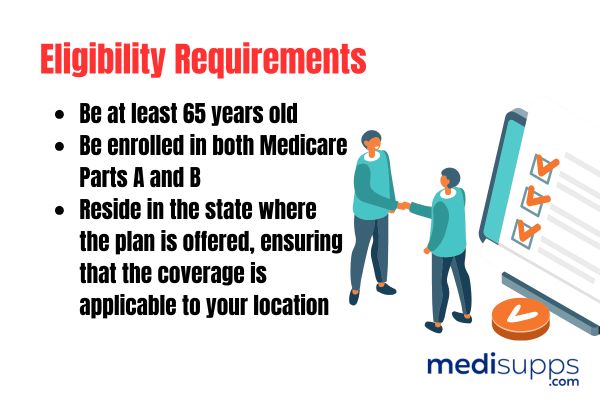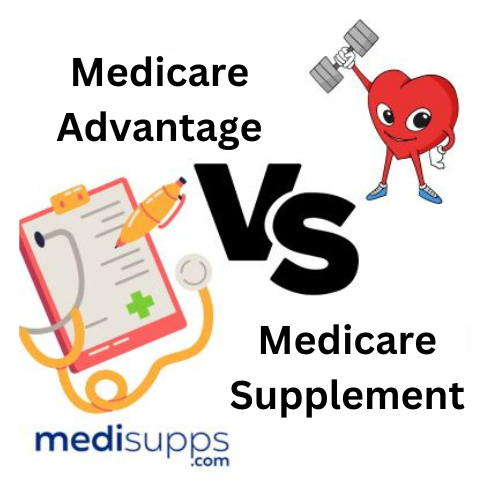
by Russell Noga | Updated June 09th, 2025
Looking for Medicare Supplement Plans Tennessee 2026? This article covers everything you need to choose the best Medigap plan for your needs. We’ll explore plan options, eligibility, costs, and how to enroll.
Key Takeaways
- Medicare Supplement plans (Medigap) cover out-of-pocket costs not paid by Original Medicare, providing standardized options from private insurers, helping beneficiaries manage healthcare expenses.
- In Tennessee for 2026, popular Medigap options include Plan F for comprehensive coverage, Plan G for best value, and Plan N for a cost-effective choice, each catering to different healthcare needs.
- Eligibility for Medigap requires enrollment in Medicare Parts A and B, with the optimal enrollment period being the six-month Medigap Open Enrollment Period that starts when one turns 65.
Compare 2026 Plans & Rates
Enter Zip Code
Understanding Medicare Supplement Plans

Navigating the world of Medicare can be daunting, but understanding the role of Medicare Supplement plans can make it significantly easier. Also known as Medigap, these plans are designed to cover the out-of-pocket costs that Original Medicare does not cover, such as deductibles, copayments, and coinsurance.
Medicare Supplement plans are sold by private insurers and consist of ten standardized options, each offering varying levels of coverage. This standardization means that regardless of the provider, the benefits of each plan are consistent. However, premiums can vary, which is why it’s important to compare options.
These plans work alongside Original Medicare (Parts A and B), allowing you to visit any doctor or specialist that accepts Medicare. This flexibility is a major benefit, especially compared to the network restrictions of Medicare Advantage plans.
What is a Medicare Supplement Plan?
A Medicare Supplement plan, or Medigap policy, is sold by private insurers to help cover costs not fully paid by Original Medicare. These plans help manage out-of-pocket healthcare expenses more effectively. They cover various costs, including copayments and deductibles, which can add up quickly for Medicare beneficiaries.
Medigap policies are designed to fill the gaps left by Original Medicare, ensuring that you have comprehensive coverage for your healthcare needs. This can be particularly beneficial for those with chronic conditions or frequent healthcare needs, as it helps to minimize unexpected medical expenses.
How Medigap Works with Original Medicare
When you enroll in a Medigap policy alongside Original Medicare, your healthcare costs are shared between Medicare and your Medigap insurer. This means that while Medicare pays its share of approved amounts for covered health care costs, your Medigap policy pays its share.
For example, if you have a medical expense that is partially covered by Original Medicare, your Medigap plan can cover the remaining costs, including deductibles and copayments. This coordination ensures that you have more predictable and manageable healthcare expenses.
Top Medicare Supplement Plans Available in Tennessee for 2026
Tennessee residents have several popular Medicare Supplement plans to choose from in 2026, including Plan F, Plan G, and Plan N. Each of these plans offers unique benefits tailored to different healthcare needs and financial situations.
Choosing the right plan depends on your specific requirements. Whether you need comprehensive coverage with minimal out-of-pocket costs or a more cost-effective option with slightly higher out-of-pocket expenses, there is a plan that can meet your needs.
Plan F: Comprehensive Coverage

Plan F is renowned for its comprehensive coverage, making it a popular choice among those who want to minimize their out-of-pocket expenses. It covers a wide range of costs, including Medicare deductibles, copayments, and coinsurance for both Part A and Part B services.
This extensive coverage makes Plan F an attractive option for many Medicare beneficiaries, especially those with frequent healthcare needs or those who want to avoid unexpected medical bills.
However, it’s important to note that Plan F is no longer available to new enrollees who became eligible for Medicare after January 1, 2020.
Plan G: Best Value for New Enrollees

For new Medicare enrollees, Plan G often represents the best value. It offers comprehensive benefits similar to Plan F, but at a lower premium. The only significant difference is that Plan G requires you to pay the Medicare Part B deductible.
This plan provides a robust set of benefits, covering most out-of-pocket costs, making it a cost-effective choice for new Medicare participants. Its lower premiums compared to Plan F make it an attractive option for those who are budget-conscious yet still want extensive coverage.
Plan N: Cost-Effective Option

Plan N is another excellent option for those seeking a balance between coverage and cost. It offers comprehensive coverage for various medical expenses, including hospital stays, doctor visits, and preventive care, while keeping premiums relatively low.
While some out-of-pocket costs may still apply, such as copayments for certain office visits and emergency room visits, Plan N remains a popular choice for those looking to manage their healthcare expenses effectively.
Eligibility and Enrollment for Medicare Supplement Plans in Tennessee

Understanding the eligibility and enrollment process for Medicare Supplement plans in Tennessee is crucial. To qualify, individuals must be enrolled in both Medicare Part A and Part B.
The best time to enroll in a Medigap plan is during the Medigap Open Enrollment Period, which starts the day your Medicare Part B coverage begins and lasts for six months. During this period, insurance companies cannot deny you coverage based on your health status.
Who is Eligible for Medigap?
To purchase a Medigap policy, individuals must have both Medicare Part A and Part B, and they need to pay a premium for the Medigap coverage. Eligibility also typically requires that applicants are at least 65 years old, although there are exceptions for those with certain disabilities.
This means that anyone meeting these criteria can apply for a Medigap plan, providing they are already enrolled in the necessary parts of Medicare. This broad eligibility makes Medigap plans accessible to a wide range of Medicare beneficiaries.
When to Enroll in a Medigap Plan
The optimal time to enroll in a Medigap plan is during the six-month Medigap Open Enrollment Period, which begins when you turn 65 and enroll in Medicare Part B. During this period, insurance companies cannot deny coverage or charge higher premiums based on your health status.
Enrolling during this window maximizes your chances of obtaining the necessary coverage without penalties or higher costs. Additionally, there are guaranteed issue periods under certain circumstances, providing further opportunities for enrollment.
Compare Medicare Plans & Rates in Your Area
Comparing Medicare Supplement Plans with Medicare Advantage Plans 2026

Understanding the differences between Medicare Supplement plans and Medicare Advantage plans can help in making an informed choice. Medicare Supplement plans are designed to cover costs not fully paid by Original Medicare, whereas Medicare Advantage plans are an all-in-one alternative that includes coverage for Medicare Parts A and B, often with additional benefits.
Comparing these plans involves looking at coverage, costs, and provider flexibility to determine which option best suits your needs.
Differences in Coverage
Medicare Supplement plans cover costs not paid by Original Medicare, like coinsurance and deductibles, reducing the financial burden on beneficiaries. In contrast, Medicare Advantage plans provide bundled services, including Medicare Parts A and B, and often additional benefits like vision and dental coverage, as well as medicare coverage options.
However, Medicare Advantage plans typically come with network restrictions, requiring members to use specific providers, which can limit flexibility.
Costs and Out-of-Pocket Expenses
Medicare Supplement plans vary in cost and coverage, making it essential to compare these aspects to find the most suitable option. Since Medigap plans are standardized, identical coverage is offered by different carriers, making price comparison essential.
Medicare Advantage plans often feature lower or even zero premiums but may involve higher out-of-pocket costs due to co-pays and co-insurance. It’s important to examine the total annual costs, including premiums and out-of-pocket expenses, when comparing these plans.
Flexibility and Provider Networks
Medicare Supplement plans provide more flexibility in choosing healthcare providers compared to Medicare Advantage plans. With Medigap, beneficiaries can see any provider that accepts Medicare without network limitations.
On the other hand, enrollees in Medicare Advantage plans often face limitations in provider choice due to established networks, which can be a significant consideration for those who value unrestricted manage access to healthcare providers.
Additional Benefits and Services in Tennessee
Medicare beneficiaries in Tennessee can access a variety of additional benefits through different plans. These benefits can enhance overall healthcare experiences and include services such as prescription drug coverage, vision and dental care, and wellness programs.
Choosing a plan that offers these additional benefits can provide comprehensive care and improve quality of life.
Prescription Drug Plans
Medicare Supplement plans do not include prescription drug coverage, so beneficiaries must obtain a standalone Medicare Part D plan for this benefit, which includes prescription medications. These plans are essential for ensuring affordable access to necessary medications.
Changes in prescription drug costs, such as the capping of insulin costs at $35 per month, highlight the importance of having a Part D plan to manage prescription drugs expenses effectively.
Vision and Dental Coverage
While Medicare Advantage plans often include additional benefits like dental and vision coverage, Medicare Supplement plans only help cover out-of-pocket costs not addressed by traditional Medicare. For comprehensive care, beneficiaries might consider supplemental plans that provide extensive vision and dental benefits.
For example, Delta Dental of Tennessee offers dental PPO plans with extensive benefits for Medicare-eligible seniors, and DeltaVision plans can provide essential eye care benefits starting as low as $8.14 per month.
Wellness Programs and Preventive Services
Wellness programs included in some Medicare Supplement plans aim to promote healthy living and prevent disease. These programs often cover services such as fitness classes, health screenings, and nutritional counseling, which can be crucial in maintaining good health and preventing chronic illnesses.
Preventive services, such as vaccinations, annual wellness visits, and screenings, help in early detection of health issues, including cardiovascular disease, leading to better health outcomes and potentially lower healthcare costs. Engaging in these programs can significantly improve overall well-being.
How to Choose the Right Medicare Supplement Plan

Choosing the right Medicare Supplement plan involves considering your personal health needs, financial situation, and specific coverage requirements. Assessing various plans and consulting professionals can help in making an informed decision.
Assessing Your Healthcare Needs
Evaluating your current health status and medical conditions is crucial for identifying the most suitable Medicare Supplement plan. Consider factors like ongoing medical treatments, specialist visits, and potential future healthcare needs when evaluating your options.
By evaluating your specific healthcare needs, you can determine which Medigap plan will provide the most beneficial coverage for your situation.
Comparing Costs and Coverage Options
Medicare Supplement plans can vary widely in premium costs, typically ranging from $100 to $300 per month. It’s important to consider the overall cost, including deductibles and out-of-pocket expenses, not just the monthly premium.
When comparing plans, assess the specific medical services each plan covers and any limitations they may have. This evaluation will help you choose a plan that aligns with your expected healthcare needs and financial capabilities.
Compare 2024 Plans & Rates
Enter Zip Code
Summary
In summary, Medicare Supplement plans play a vital role in covering the healthcare costs not paid by Original Medicare. In Tennessee, the top plans for 2026 include Plan F, Plan G, and Plan N, each offering unique benefits tailored to different needs and budgets. Understanding your eligibility and the best time to enroll can help you secure the coverage you need without facing penalties or higher costs.
Choosing the right Medicare Supplement plan involves assessing your healthcare needs and comparing costs and coverage options. By doing so, you can find a plan that provides comprehensive coverage and peace of mind, ensuring you receive the care you need without unexpected financial burdens.
Frequently Asked Questions
What is the difference between Medicare Supplement and Medicare Advantage plans?
Medicare Supplement plans fill the gaps in costs not covered by Original Medicare, whereas Medicare Advantage plans offer a comprehensive package that includes all Medicare benefits and often additional services.
Who is eligible for Medigap plans?
To be eligible for Medigap plans, individuals must be enrolled in both Medicare Part A and Part B. This ensures that you have the necessary coverage to complement with a Medigap policy.
When is the best time to enroll in a Medigap plan?
The best time to enroll in a Medigap plan is during the six-month Medigap Open Enrollment Period that begins when you turn 65. Enrolling during this period ensures you have guaranteed coverage without medical underwriting.
Do Medicare Supplement plans cover prescription drugs?
Medicare Supplement plans do not cover prescription drugs; you will need a standalone Part D plan to obtain that coverage.
What additional benefits can Medicare Advantage plans offer?
Medicare Advantage plans provide valuable additional benefits, such as vision and dental coverage, along with wellness programs that enhance overall health care. These added services can significantly improve your healthcare experience.
Speak to the Professionals about Medigap Plans and Original Medicare
If you find understanding the benefits involved with Original Medicare and Medigap Plans challenging, you’re not alone. Whether it’s a Medigap plan, or you want to know more about the Medicare Supplement Plans Tennessee 2026, we can help. Call our team at 1-888-891-0229 for a free consultation or complete the contact form on this site, and an expert will call you back at a convenient time.
We have decades of experience advising our clients on the complexities of Medicare and Medigap plans, the benefits, costs and deductibles. We’ll ensure you get the best rate in your state and advice you can trust.




